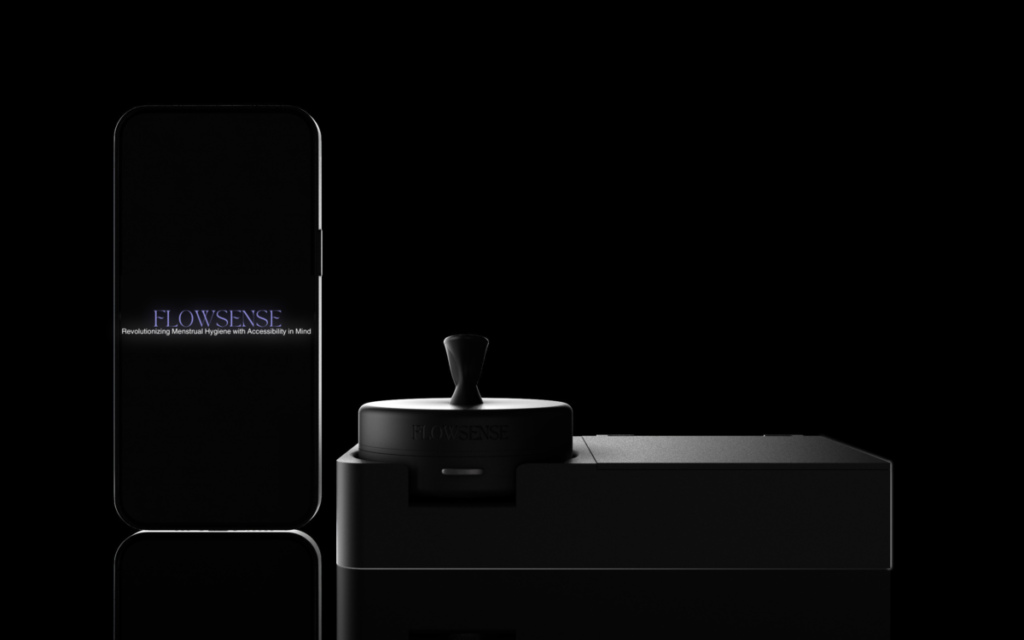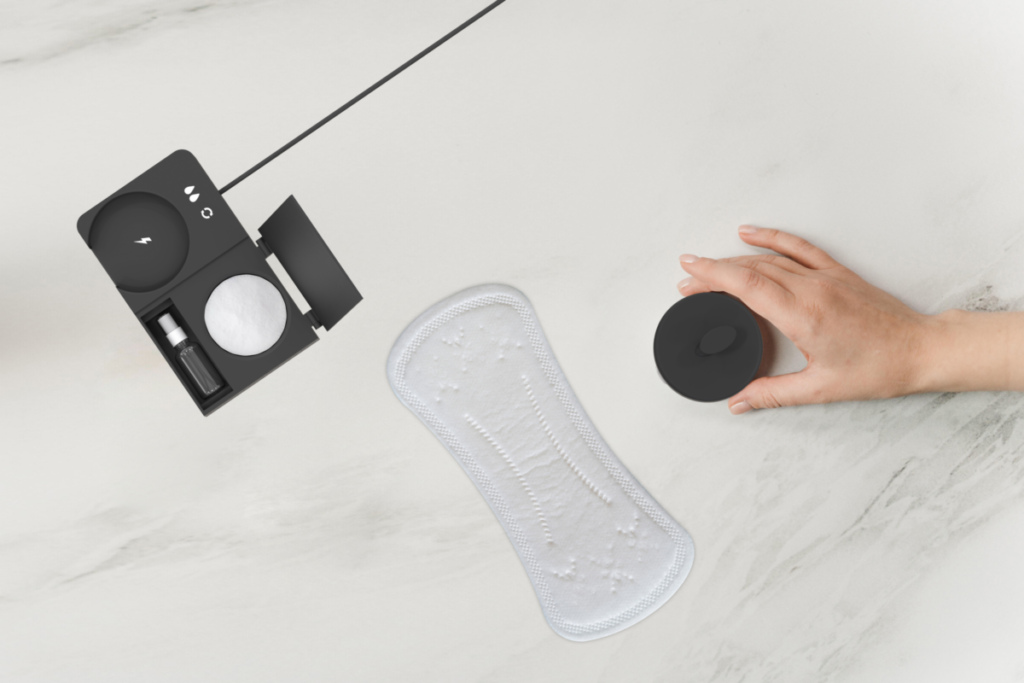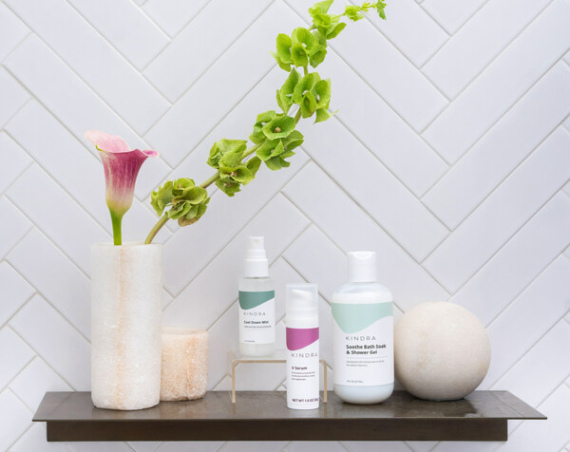
In a big leap towards more inclusive menstrual care, UK-based Muna Daud has launched Flowsense, an accessible period blood detection device designed for visually impaired women. The gadget empowers users to independently and effectively manage their periods, offering a discreet, precise, and non-invasive method for period blood detection while also keeping track of their menstrual cycle.
The lack of accessible feminine hygiene products for visually impaired women often leads to dependence on others for managing menstrual hygiene, perpetuating feelings of uncertainty, vulnerability, and fear of staining clothes. Flowsense’s inclusive approach reinstates autonomy and privacy as it moves beyond traditional blood detection methods by using pH level measurements to distinguish between period blood and vaginal discharge. Users can easily attach disposable testing strips to sanitary pads or underwear, with a color sensor analyzing the pH color change. The device then provides haptic or audio feedback, ensuring real-time and accessible results for users. This mechanism promotes accessibility, discretion, and simplicity, enhancing the user experience for visually impaired women.

Developed in conjunction with the visually impaired community at Royal National Institute of Blind People, the design process of Flowsense prioritized the users’ emotional well-being and specific pain points. Extensive collaboration with a diverse team of accessibility experts, gynecologists, chemists, and manufacturers has resulted in a prototype that seamlessly integrates into the users’ daily lives while ensuring accurate and reliable menstrual blood detection.
Flowsense’s team now plans to collaborate with manufacturers to deploy a batch of prototypes to diverse users, working closely with the community to establish trust and widespread adoption.



